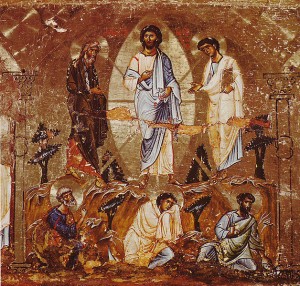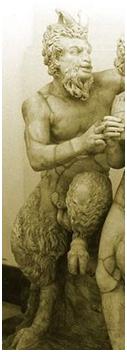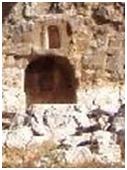2 Peter 1:16For we did not follow cleverly devised myths when we made known to you the power and coming of our Lord Jesus Christ, but we had been eyewitnesses of his majesty. 17For he received honor and glory from God the Father when that voice was conveyed to him by the Majestic Glory, saying, “This is my Son, my Beloved, with whom I am well pleased.” 18We ourselves heard this voice come from heaven, while we were with him on the holy mountain.
19So we have the prophetic message more fully confirmed. You will do well to be attentive to this as to a lamp shining in a dark place, until the day dawns and the morning star rises in your hearts. 20First of all you must understand this, that no prophecy of scripture is a matter of one’s own interpretation, 21because no prophecy ever came by human will, but men and women moved by the Holy Spirit spoke from God.
I offer to you an interpretation of this passage that runs counter to many commentaries (ok, all of them except Jerome Neyrey’s 2 Peter Commentary in the Anchor Bible Series):
The key question to ask about v. 19 where Peter writes “we have the prophetic message more fully confirmed”: Is Peter talking about the Old Testament “prophetic message” or the New Testament “prophetic message”?
Indeed, Peter is talking about New Testament prophecy—his own apostolic prophetic writings.
The whole section is written to validate Peter’s own written revelation of the nature and message of Jesus as Lord. “For we did not follow cleverly devised myths when we made known to you the power and coming of our Lord Jesus Christ, but we had been eyewitnesses of his majesty.”
Why choose the Transfiguration event experience to make such a point? Why not the resurrection, or some other miracle? Why? –For the same reason the Sinai narrative is included in Exodus and Deuteronomy.
The purpose of the Mount Sinai narrative is to validate the authority of Moses as the divine ambassador of the Law. Moses didn’t simply make up the Law and the Covenant. He received it from the King on the Holy Mountain. Therefore, the Law of Moses is Holy and should be listened to, followed and passed on from generation to generation as a perpetual covenant with Israel.
Likewise, the apostolic scriptures (writings) are not simply the “deep thoughts” by the Apostles (see v.20). The Apostles received divine authorization to be royal ambassadors by virtue of their presence on the Holy Mountain where Jesus was revealed to them in full majesty to be the Son of God (Psalm 2 being the inauguration psalm of the Messiah King). Peter solemnly encourages the church to “pay attention”(v.19) to the apostolic sacred writings, they are not made up, they are the words of God. Attentiveness to the “prophetic word” of the New Covenant Scriptures will bring forth the dawn of the Sun into the heart of the believer. (v.19)
The entire point of the 2nd Letter of Peter is a stern prophetic warning against false teachers and false prophets. Positively, it is a prophetic encouragement to adhere to the “the commandment of the Lord and Savior spoken through your apostles” (3:2) and a call to trust in the “precious and great promises” (1:4) announced in the Apostolic prophetic message.
As Peter writes in 1:14-15: “I think it right, as long as I am in this body, to refresh your memory, 14since I know that my death will come soon, as indeed our Lord Jesus Christ has made clear to me. 15And I will make every effort so that after my departure you may be able at any time to recall these things.”
Peter’s concern is to see the faithful persevere in growth in the character of the faith so that they would not fall. But rather by confirming their “calling and election”, they will be assured of a rich welcome in the eternal kingdom of the Lord and Savior Jesus Messiah!
The Apostle Peter’s entire concern in the letter is one of apostolic succession. Not in the fully developed sense of that technical term. More simply, Peter (just like Moses) knew that he was a “short timer” by the Lord’s revelation. It was imperative that he make sure that with his “exodus” from this life, the authoritative message of the Gospel and the Command of the Lord did not make its exodus with him.
The transfiguration event is an amazing glimpse into the true nature of Jesus as the divine King in human flesh. Wondrously, it gives us a glimpse of the glory that is yet to be revealed in us when we are full “participants in the divine nature”. (see 2 Pet. 1:4)
 In this respect, the Mount of Transfiguration is for the New Covenant and its ambassadors the Apostles, what Mount Sinai was for the Old Testament and its ambassador, Moses.
In this respect, the Mount of Transfiguration is for the New Covenant and its ambassadors the Apostles, what Mount Sinai was for the Old Testament and its ambassador, Moses.
Interestingly, 2 Peter as a book in the New Testament is one of the most criticized books in all of the New Testament. Many modern Commentators outright reject its Petrine authorship and its authenticity as a book in the Canon. In doing so they dull, no they mute, its condemnation of their false own teachings and licentious behavior. In many New Testament commentary series, strangely it is often the missing book. Nobody focuses on Second Peter.
One has to wonder what would happen if we would uncrumplethis little three chapter book from the trash bins to which modern scholarship has relegated it. Could the rediscovery of its canonical purpose be a moment not unlike Hilkiah finding the lost copy of the Law of Moses during the evil days of King Josiah the reformer of Israel? (2 Kings 22:8) Could it not speak profoundly to the needs and problems of the modern Church?
Indeed when Jude reflects back on the Second letter of Peter in his terse prophetic woe oracle, he calls the Church to “contend for the faith that was once for all entrusted to the saints.” Jude sounds the warning, “For certain intruders have stolen in among you, people who long ago were designated for this condemnation as ungodly, who pervert the grace of our God into licentiousness and deny our only Master and Lord, Jesus Christ.” Are we not faced with the same?
In “the faith once for all entrusted to the saints”, we have a sacred trust, we are the successors of Peter and the prophetic word of the Apostles’ teaching. We would do well to be attentive to it. For to us is given the high calling to maintain unbroken apostolic succession to the faith that we have been entrusted.
As a sacramental act, we pass on that charge through the laying on of Episcopal hands in ordination and confirmation. A sacrament is an outward and visible sign of an inward and spiritual grace. Those Episcopal hands are not merely the symbol of the faith but also signify the substance of it going back to Peter and the command of the Lord. The laying on of hands in and of itself is meaningless ritual without the concurrent conveyance of the faith and the commitment to uphold and teach the sacred prophetic writings of Moses, the prophets and the apostles–the faith once for all entrusted, the faith received.
So we have the very firm prophetic word… We will do well to be attentive to this as to a lamp shining in a dark place, until the day dawns and the morning star rises in our hearts.


 nd demonic activity.
nd demonic activity.